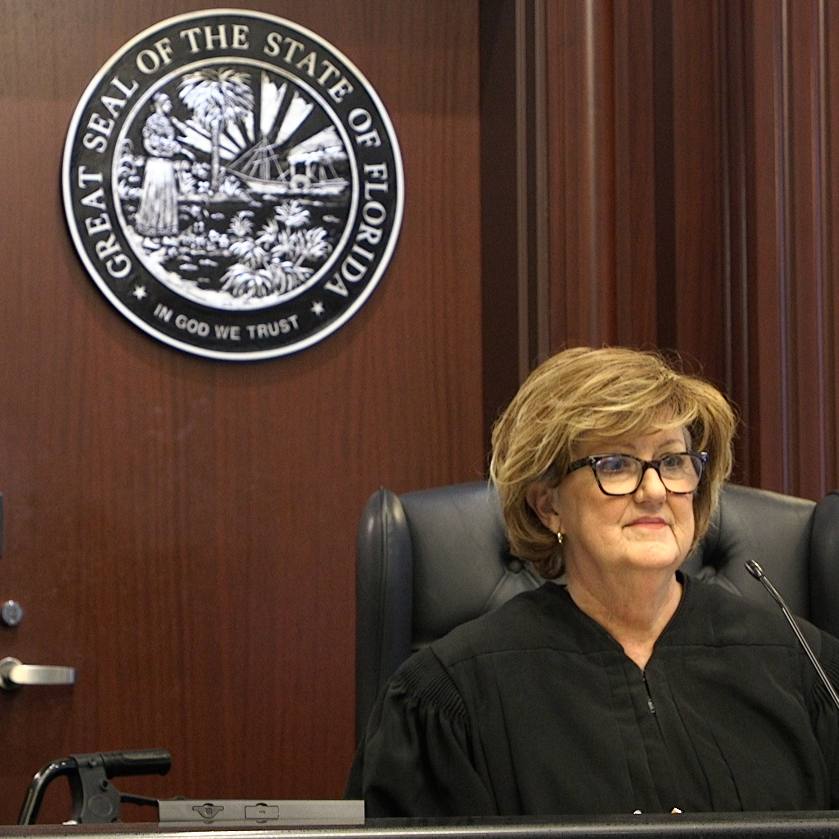
Mayo Clinic's 14-year partnership with Diné College has opened up opportunities for students like Corinna Sabaque to gain experience in fields where Native communities are often underrepresented and underserved. In Sabaque's case, those opportunities launched a career in cancer research.
In the summer of 2014, Corinna Sabaque moved more than 1,000 miles from her home in the Four Corners area of New Mexico to Rochester, Minnesota, to complete a 10-week internship in breast cancer research at Mayo Clinic.
"Coming to Minnesota was hard," Sabaque says. "I didn't know anybody. I didn't even know whether I wanted to do cancer research." Despite those difficulties, Sabaque came back that fall for another internship. This time she spent seven months studying pancreatic cancer alongside Gloria Petersen, Ph.D., an epidemiologist and deputy director for Population Sciences at Mayo Clinic Cancer Center.
A student from Diné College, a tribal college serving the Navajo Nation, Sabaque was pursuing a four-year degree in community health. Now she works at Mayo Clinic in Rochester as a health sciences researcher, dividing her time between pancreatic cancer research and health issues among Native populations.
Mayo Clinic's 14-year partnership with Diné College has opened up opportunities for students like Sabaque to gain experience in fields where Native communities often are underrepresented and underserved. In Sabaque's case, those opportunities launched a career in cancer research.
"Mayo opened a lot of doors for me to learn about cancer research, and that experience developed my interest," Sabaque says.
Seizing opportunities
A $75,000 grant supplement from the National Cancer Institute is helping Mayo Clinic and Diné College offer more Native American students like Sabaque opportunities to learn about cancer research. In April 2018, a group of Mayo representatives and educators, and leaders from five tribal colleges met in Shiprock, New Mexico. For two days, they shared ideas and discussed plans for a cancer research curriculum as part of a new four-year program in public health at Diné College to promote diversity in cancer research.
The meeting explored cultural perspectives and priorities in cancer research. "That meeting was critical," Dr. Gloria Petersen says. "It provided the time and space to develop culturally sensitive approaches to attract and interest a new generation of learners."
"(Mayo Clinic) Cancer Center really has something to offer with our longstanding relationship with Native tribes and our combination of resources, experience, scientists and investigators who can inspire young people and bring them along in a career in cancer research."
Gloria Petersen, Ph.D.
Funding for the two-day workshop came from a supplement to Mayo Clinic Cancer Center's National Cancer Institute's Cancer Center Support Grant. These supplements were offered to cancer centers that would promote cancer opportunities to underserved minorities.
"This was an opportunity we were not going to miss," Dr. Gloria Petersen says of the supplement. "The Cancer Center really has something to offer with our longstanding relationship with Native tribes and our combination of resources, experience, scientists and investigators who can inspire young people and bring them along in a career in cancer research."
Increasing involvement
With the support of researchers at Mayo Clinic, Diné College is preparing an application for a second grant. The grant would support the implementation of a Cancer 101 curriculum that was developed as a result of the meeting at Shiprock. Diné's curriculum will reach more than 50 students enrolled in advanced biology and public health courses annually.
The current vision of the curriculum also includes five 10-week cancer research internships at Mayo Clinic for Diné students. These are modeled after the opportunities Sabaque had as a student.
"Giving Native students the opportunity to come to Mayo Clinic would open doors for hands-on learning experiences in laboratory and clinical projects that they wouldn't normally have," Sabaque says. She credits time spent in cancer research labs at Mayo for piquing her interest in the field.
"This is really one step in a larger effort to help more Native students get involved in doing this kind of research," says Christi Patten, Ph.D., a professor of psychology in the Behavioral Health Research Program. Dr. Patten was principal investigator on the first grant Mayo and Diné College partnered on 14 years ago.
"These students would be doing research that comes from their community and is sensitive to their specific needs in the health care system."
Wesley Petersen, Ph.D.
Only about 4% of Native American and Alaskan Native populations have the advanced degrees necessary to be principal investigators in clinical research. Raising that number could reduce health disparities and bring valuable insights to cancer research.
"These students would be doing research that comes from their community and is sensitive to their specific needs in the health care system," says Wesley Petersen, Ph.D., director of Native American Research Outreach at Mayo Clinic. "By addressing research questions that are important to those patients, we're making steps toward improving their health."
Dr. Patten adds, "If we don't have Native voices at the table, we're missing a whole dimension of cancer research."
Note: A version of this story previously was published on the Advancing the Science blog.
HELPFUL LINKS
- Learn more about research at Mayo Clinic.
- Check out Mayo Clinic Cancer Center.
- Explore Mayo Clinic.
- Request an appointment.







